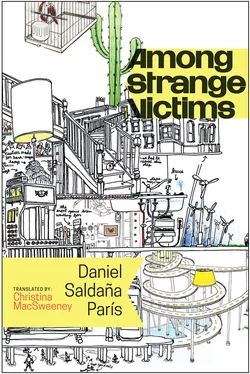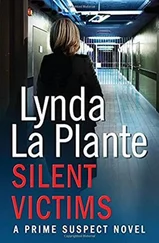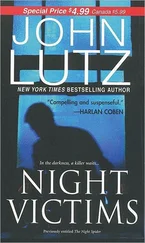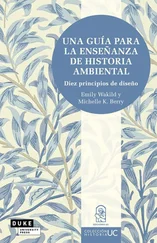There was no bottled water in his new home, and Velásquez had warned him all too clearly about the negative effects of the tap water — a unique mixture of fecal material and toxins — on the health of a European, so he decided to walk a little way to the estate’s security booth and ask where he could buy a demijohn of drinking water.
The guard spotted Marcelo in the distance, making his way along the sun-drenched street, and sardonically thought this must be the new foreigner they’d all been making so much noise about. The owner of numbers 34, 35, and 36 had told him a Spanish professor was going to occupy 34 for a whole year, to work at the university. After this announcement, he had heard other members of the teaching staff — number 59 and number 28—commenting that some guy was coming from Europe on an interuniversity exchange to nab the few straight female professors they had. Jacinto, the guard, had seen a lot of gringos like that one file through Puerta del Aire. He had seen them move into number 44, number 60, numbers 70 and 75, and had seen every single one of them throw in the towel before the fight was over: return to their respective countries, go to DF, spend the night in their tiny offices. . None had survived Puerta del Aire for more than six consecutive months, and this tall little Spaniard with ruffled hair wasn’t going to be any different, you could see that from a mile away. As a zealous, conscientious army officer, Jacinto was proud of the level of desertions Puerta del Aire had achieved among the foreign population. The estate was, in his nameless fantasy, a smaller but worthier version of the country as a whole, a territory impermeable to the evil intentions of gringos, badass and independent from the steel beams of its houses to the dirty white dust of its streets. And in this country, made to the measure of his ambitions, Jacinto ruled the roost.
Marcelo arrived panting at the security booth and, once in the shade, had to take a number of deep breaths before asking the guard where the nearest store was. Jacinto was slowly and silently chewing a segment of a mandarin orange while his hands were employed in peeling the rest of the fruit; a thread of juice trickled down his dark chin.
“You’re the Spanish guy, right?”
“I suppose so. Well, I don’t know if I’m the Spanish guy, but I’m Spanish and I’m a guy. Were you told I was coming?”
The guard insolently ignored that last question and continued to concentrate on his orange. Marcelo Valente was sweaty and found the guard’s attitude slightly maddening.
After a long pause, Jacinto spoke again, returning to the initial, and for Marcelo, more pressing question, “Well, there’s no store around here. . You’ll have to drive to the outskirts of Los Girasoles. . or the other way. .” Between each linguistic outflow, Jacinto appeared to be savoring the anxiety he was provoking.
“The other way? Where?” asked Marcelo, intrigued, seeming to remember Velásquez had said the road came to an abrupt end at the university, five or ten minutes away. Was Jacinto trying to say he could buy bottles of water at the university?
The guard took off his blue cap bearing the logo of the security company and put it on the table, which, together with a portable radio and some sheets of paper with prestamped signatures, was the only object visible in the booth. He appeared to think this over for a while, wiped the trickle of mandarin juice from his chin with his sleeve, and then went on, looking Marcelo in the eyes for the first time. “No, the store’s farther off if you go the other way, señor. You’d be better off waiting for Señora Ridruejo to come. .”
Señora Ridruejo was the owner of numbers 34, 35, and 36. And she was the person responsible for the untruthful internet advertisement that now had Marcelo boiling with indignation. The professor, however, had completely forgotten the owner’s surname, and in the security guard’s mouth it sounded even stranger than before. He oscillated between surprise and exasperation. He was thirsty, he didn’t want to talk to any Señora Ridruejo, and he was beginning to regret not having stayed at the (h)otel a few days longer.
“Are you saying that if you don’t have a car, you can’t buy a bottle of water?” Marcelo asked bluntly, letting his growing anger show.
“No. Well, to get to the store you do need a car, but not to buy water. You asked about the store, not a place where you can buy water.” Jacinto’s response was as mysterious as it was irritating, and his unwillingness to say things plainly made Marcelo think his stay in Mexico was going to feel like a very long one. Openly impassioned, he rebuked the guard, consciously bringing into play that brusque Castilian manner that was to cause him so many mix-ups.
Jacinto went on the defensive: “Keep your temper, eh? I’m not some errand boy here to go looking for stores for you. . What I do is watch, so that they don’t bump you off in the night,” he said, maintaining his tone of indifference, in spite of the harshness of his message. “If you want water, you can knock on the window of number 9. They sell things there. .”
Marcelo thought he didn’t know a more exact definition of “store” than “a place where they sell things,” but he kept that semantic reflection to himself to avoid further argument and held out a hand to the guard in farewell. “I’m Professor Marcelo Valente. I’ll be living here for some time. A pleasure to meet you, and thank you for your help.”
This courteous gesture softened the other’s manner; he shook Marcelo’s hand firmly, introducing himself as “Jacinto Nogales Pedrosa At Your Service.” Marcelo left the booth and immediately felt the sun beating down once more on his neck. He walked along the main street until he saw the number 9, leaning to one side over a door, and gently tapped on the window with his knuckles. Since no one responded and no movement was to be seen inside, Marcelo had the sudden suspicion Jacinto Nogales Pedrosa At Your Service had been pulling his leg, sending him off to one of the many empty houses. Luckily, before Marcelo could knock again, the door was opened by an elderly woman, anchored to the floor by a pair of pink slippers, who sold him a demijohn of water with a speed and efficiency that, for the first time, met the urgency of his situation.
Back in the house, Marcelo sat down on his orange two-seater sofa and drank straight from the bottle. Once his thirst was quenched, he began to feel hunger pangs, and he thought he would never manage to do anything until he had a car of his own in which to escape from Puerta del Aire. It was by then almost six in the evening, and Marcelo Valente hadn’t had a bite since the meager bread roll he had eaten with his coffee in the airport before setting off for Los Girasoles. To cap it all off, his moral vegetarianism made things difficult since it was improbable, in this region famous for its cattle, he would be able to find a decent meal of vegetal origin. He then told himself he would eat the first thing he saw. In any case, he thought, none of his colleagues at the University of Los Girasoles would discover him slicing into a filet steak at this hour, so it would be possible to maintain the ethical rigor of his character intact, if not that of his person.
 B
B 
The second event to mark the life of Bea Langley, now Bea Burton, occurs thirteen years later, in 1914. Her father has died; her mother is living in London, embittered and reclusive, like a dried-up piece of fruit someone has left in a drawer. Bea is now Beatrice, as her husband calls her, and Mama, as her children — a boy and a girl — call her, in an accent that mixes the uncertain tone of five-and seven-year-olds with the insecurity of living in an almost excessive state of linguistic diversity. Their house in Florence is not exactly a villa, but it has a pleasant courtyard where the Burtons receive any foreigner who passes through the city, in addition to their English expatriate friends, who spend their time complaining about Mediterranean manners but can’t go to London without becoming immediately depressed.
Читать дальше

 B
B 







